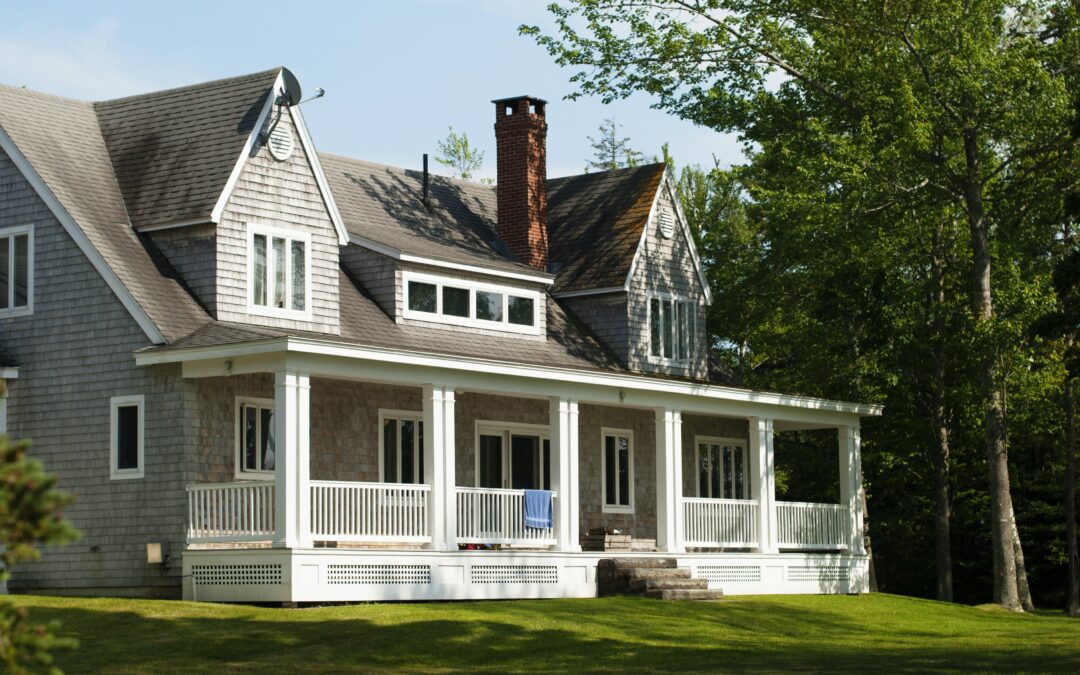Maintaining an environmentally-friendly home is a priority for many homeowners today. By reducing the mark that your home leaves on the planet, you can make the environment more fruitful for generations to come. But, more than that, taking measures to make your home in Denver more energy-efficient will also provide significant energy savings.
One way to lower your home’s impact on the environment is to opt for an eco-friendly roofing system. Many roofing materials and designs are now available for eco-conscious homeowners, all of which can make a positive impact on your home. Whether you’re moving into a new home or need a roof replacement, these eco-friendly roofing options are worth your consideration.
Why Choose Eco-Friendly Roofing?
Need more reason to choose eco-friendly roofing solutions? Here are the key benefits that you’ll gain in doing so:
Energy Savings
Eco-friendly roofing allows for greater temperature regulation throughout your Denver home. Heat or cold from the outside will be less likely to impact the temperature of your home, allowing your HVAC system to operate more effectively. When less energy is required to power your A/C and furnace, you’ll see greatly lower totals on your monthly utility bills.
Reduce Landfill Waste
Many environmentally-friendly roofing materials are made from recycled components and/or can be recycled. Recyclable roofing materials ensure that once your roof has reached its full lifespan, it won’t simply end up in a landfill. Instead, it will go towards a new roof for another homeowner, or another constructive application. Landfill waste has a number of harmful effects, including chemicals seeping into key sources of water.
Affordability
Since many types of eco-friendly roofing materials are recycled or repurposed, you can get a great deal on a new, green roof. This is yet another perk of being gentle on the environment with an eco-friendly roofing solution.
Eco-Friendly Roofing Materials
Metal
Metal roofing is very popular for residential roofing applications for many reasons, one of which being its recyclability. You can recycle a metal roof once it’s reached its expiration date, meaning that your old roof won’t go to a landfill. Additionally, you can set a metal roof up to collect rainwater, which can support your household’s water consumption.
Besides its environmental benefits, metal roofing provides exceptional strength. In all types of weather conditions, including snow, a metal roof will perform well and protect your Denver home against damage. After a snowstorm, the accumulated snow will smoothly fall off of your roof, helping to prevent ponding water and eventual water damage to your roof.
Cedar Wood
Since cedar wood shingles or shakes are an entirely organic roofing material, they’re good for the environment. Unlike with roofing materials made of fiberglass and other inorganic materials, the construction of cedar wood roofing won’t contribute to the Earth’s pollution. Additionally, cedar wood roofing can be recycled at the end of its lifespan. If you choose not to recycle your cedar wood roof, though, it’s biodegradable and still won’t harm the planet.
Cedar wood roofing offers a natural, rustic look for Denver homes. It also provides natural insulation, which will boost the efficiency of your heating and cooling systems and cut down on energy costs.
Reclaimed Clay or Slate
Reclaimed clay or slate roofs consist of slate or clay shingles that were retrieved from an old roof. Since slate and clay are both ultra-long-lasting roofing materials, reclaimed slate or clay will still provide an excellent lifespan for your new roof, with the added benefit of eco-friendliness. Using reclaimed roofing materials prevents old materials from going to landfills and reduces the amount of energy used in new roofing material manufacturing.
Cool Roofing
Another way to ensure that your roofing system is eco-friendly is to select a cool roofing design. A cool roof is defined as a roof that provides a high degree of solar reflectance and thermal emittance when compared to the average roof. Solar reflectance refers to the capacity of a roof to reflect the sun’s infrared and ultraviolet rays. Thermal emittance is a roof’s performance in radiating solar energy that isn’t reflected. These qualities allow a roof to keep heat from the sun from entering your home through the roof. This will lower the amount of energy required to keep your home cool in the summer. For more information about eco-friendly roofing in Denver, contact Woodberg Roofing and Restoration today.

